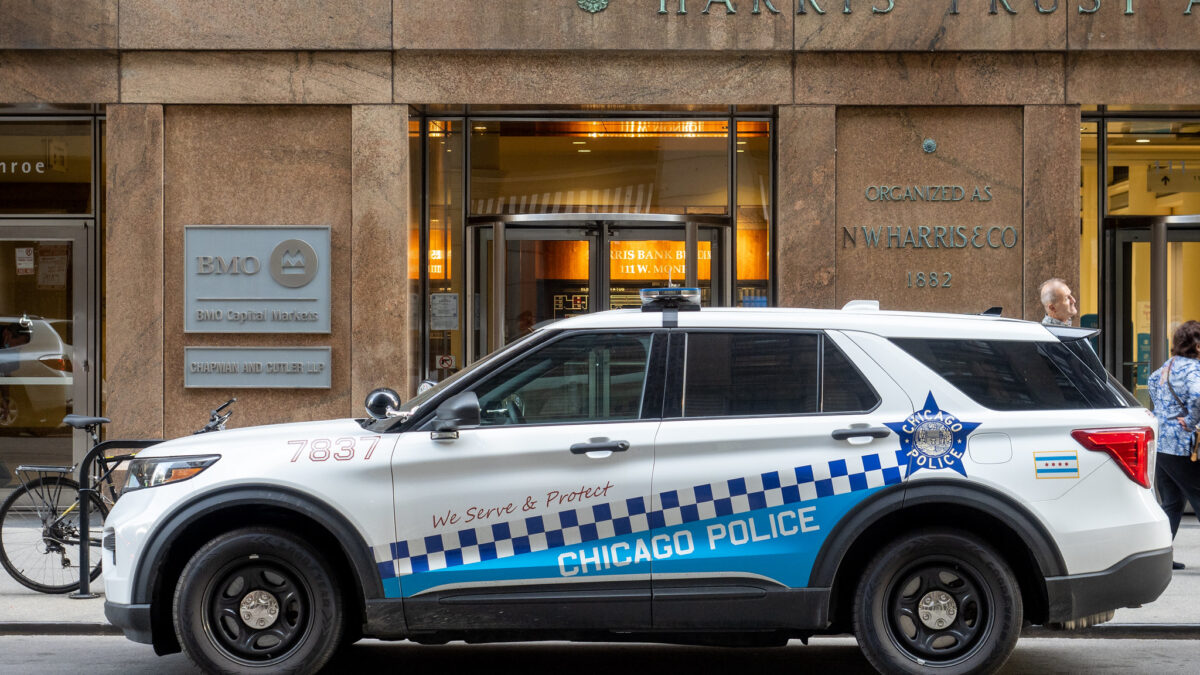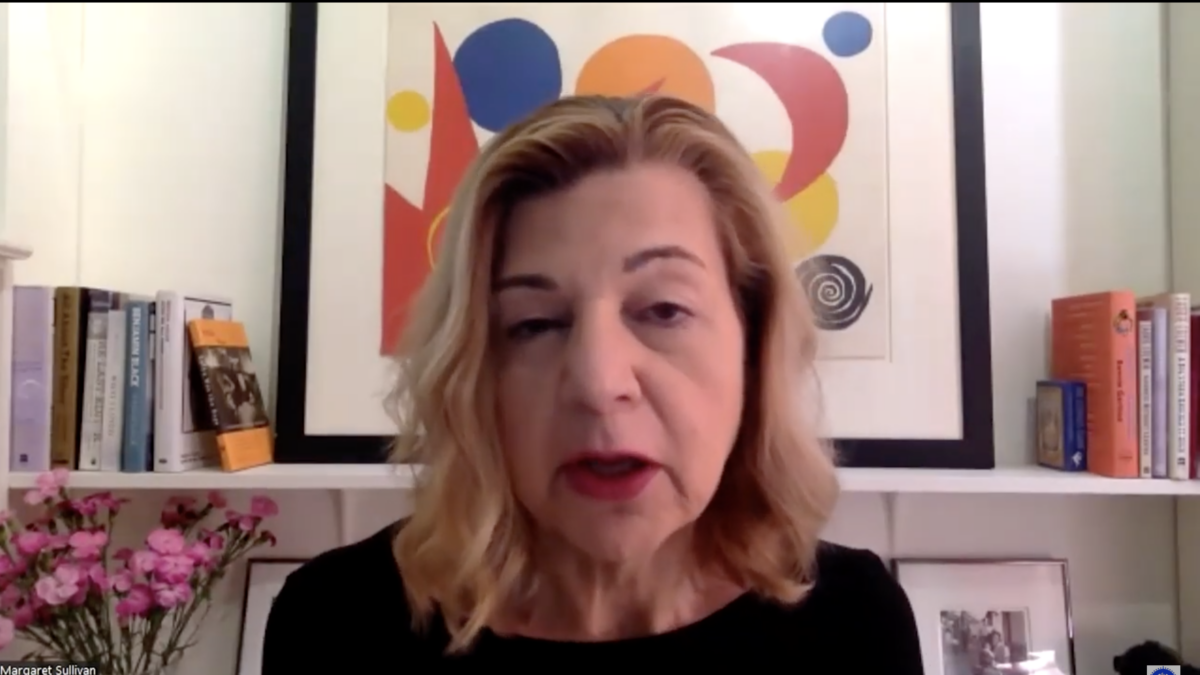
The following is a transcript of my radar from Tuesday’s edition of “Rising” on HillTV.
In few corners of this country will you find that racism is not broadly stigmatized, let alone in a county that preferred the first black president by a nine-point margin. Wausau, Wisconsin is a working-class Midwestern city, located in a classic “forgotten man” district—one represented by a Democrat for decades, friendly to Obama, friendly to the Tea Party, then friendly to Trump—a city with a median income well below the state average and a beautiful slice of the Wisconsin River running right through it.
New York Times reporter Reid Epstein, who worked formerly for the Milwaukee Journal Sentinel, parachuted into Wausau recently to highlight a contentious local debate for his national audience. You’ll be surprised to learn he found what he was looking for, a backwards community full of ignorant reactionaries and their victims.
“A ‘community for all?’ Not so fast, this Wisconsin county says,” the New York Times headline sneered. “The racial divisiveness that President Donald J. Trump stoked during his four years in the White House endures in the daily life of towns like Wausau,” Epstein wrote, reporting on a tense Marathon County board meeting last month.
At issue was a fairly innocuous resolution declaring the county “A Community for all” that inspired strong responses from both sides, likely because it’s peppered with charged jargon like “equity” that is common sense to the left and Marxist to the right. In his copy, Epstein was sure to include a lecture on the correct, Ivy-League certified interpretation of “equity,” writing that the word “served as a trigger for many, who made the false claim that memorializing it as a goal would lead to the county’s taking things from white people to give them to people of color.” You can do that when you have a journalism degree from Columbia, I suppose.
According to Epstein, “Those opposed to the resolution made far-reaching claims about its potential impact.” He had no similar concerns about claims from proponents of the bill that its failure would precipitate “economic calamity.” The whole article depicts a scene out of “Parks & Recreation,” with enlightened progressives locked in a righteous battle with conspiracy-addled right-wing rubes hopped up on “Hannity.” It’s shoddy journalism because it’s opinion laundered into the discourse as objective news, but also because it’s wrong. And it’s wrong in a very telling way.
Marathon County was home to a tiny town named Brokaw until 2018. Brokaw no longer exists. Its 250 inhabitants were absorbed into a neighboring town after its last paper mill closed in 2012, eliminating 450 jobs and bankrupting Brokaw. Some people, including a former executive and bipartisan coalition of senators, blame the involvement of a New York hedge fund. “Did they have control of the mill? Absolutely not. Did they direct the actions of the company? Absolutely not. Did they create the conditions that led to the closure of the mill? Yes,” Hank Newell of Wausau Paper told the Washington Post in 2018. It inspired the “Brokaw Act” from Wisconsin’s Democratic Sen. Tammy Baldwin, co-sponsored by former Georgia Republican Sen. David Perdue.
Whatever level of involvement you believe the hedge fund had in Brokaw’s death, there’s also increasing competition from China and rapid technological changes to blame for the shifting economic landscape in Marathon County, which produces nearly all of America’s ginseng—although “most of that production has been lost to Canada and china,” since the 1990s, according to the local CBS affiliate.
So why is the county board mired in a fight about diversity and equity? Why is that so animating to voters?
Racism is everywhere, even Wausau, a predominantly white city that has for decades welcomed Hmong refugees fleeing communist violence after the Vietnam War, to the point where Hmong now account for about 10 percent of Wausau’s population. It’s really a beautiful American story, not a perfect one, but beautiful nonetheless.
The most poignant excerpt from Epstein’s dispatch in the Times was a quote. “I don’t have the same type of confidence or faith in the community like I used to,” a 39-year-old of Hmong descent, who said her support for the resolution triggered death threats, told the Times. “I was born and raised here, and I don’t recognize the community that I grew up in right now.” That’s a minority, millennial proponent of the resolution saying the same thing many of its white, Boomer opponents would say, that she doesn’t recognize the community she grew up in.
I don’t blame the hedge fund for the county-board blow-up. I blame our leaders for normalizing unpatriotic economics in the interest of their own bank accounts and Silicon Valley for facilitating the gamification of our discourse, getting rich off our addictions and divisions. And I blame legacy media outlets like the New York Times for making all of it worse, for smearing decent people who disagree with elite opinion, making the predatory work of Silicon Valley even easier.
The resolution, which ultimately lost, was initially named “No Place for Hate.” Do New York Times readers understand why weird academic jargon that implicates the county in racism might offend a community that opened its arms and its heart to a massive influx of refugees and helped elect the first black president? I certainly understand why younger residents of the predominantly white county conditioned to see racial strife everywhere are starting to feel targeted when they didn’t previously. And why resentment is now building on both sides. We have different definitions of basic terms.
The road to recovery is not through shoddy and contemptuous parachute journalism that just keeps blaming Trump for racial divisions. It’s about admitting cultural and economic anxieties are intertwined and, more importantly, admitting those anxieties are often reasonable, not categorically reactionary. Trump is a symptom, not a cause. If you don’t get that by now, you have no business reporting on any of this.
By the way, I live here in D.C. because I grew up in Wisconsin and hated the way we were depicted by the media. I wanted to help change that however I could. So, yes, this is personal, but it’s personal for a whole lot of other people too.
Elites in academia, media, and business want more debates over equity. The rest of us just want to feed our families and get along. Those two goals are not compatible in this fraught cultural climate.









